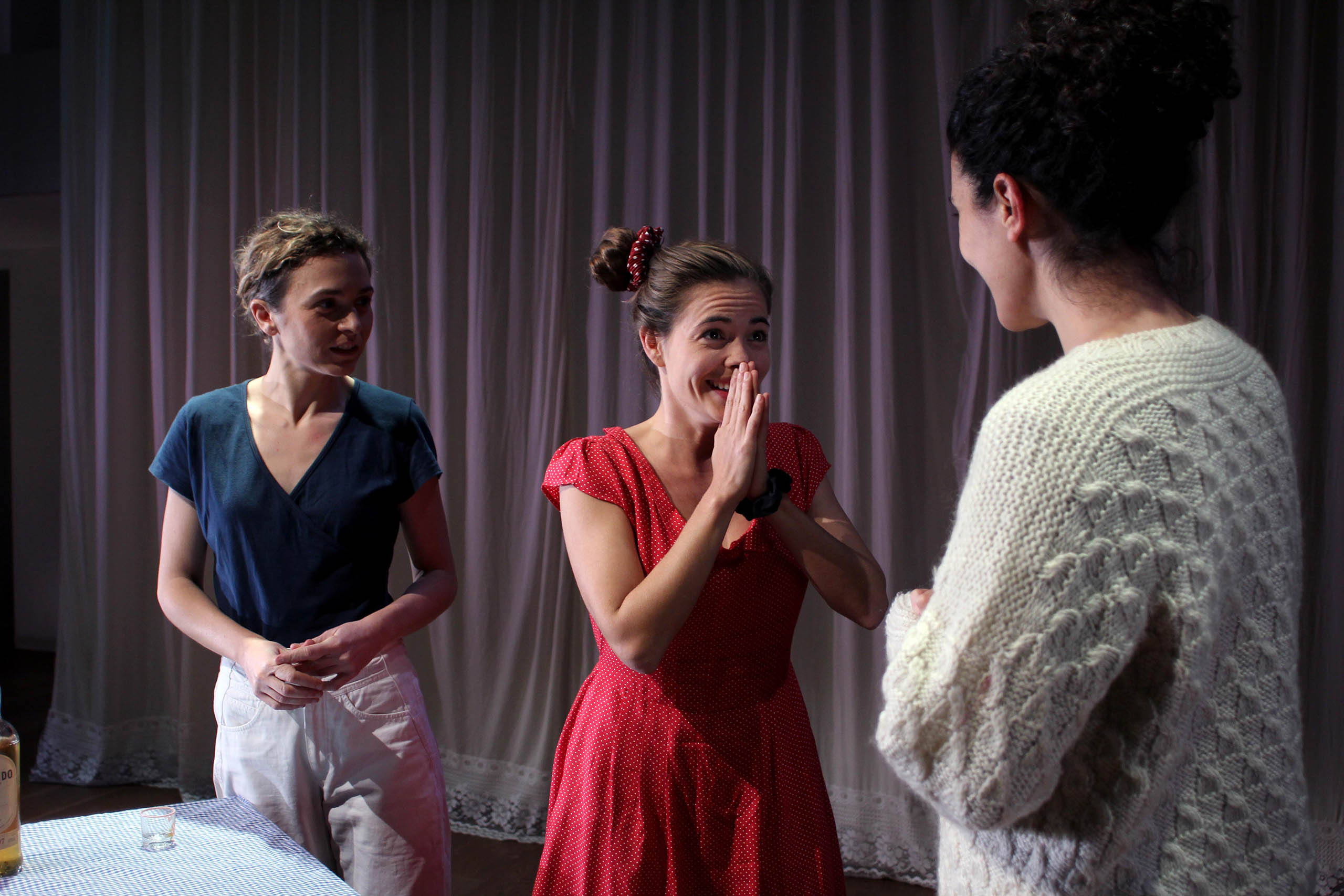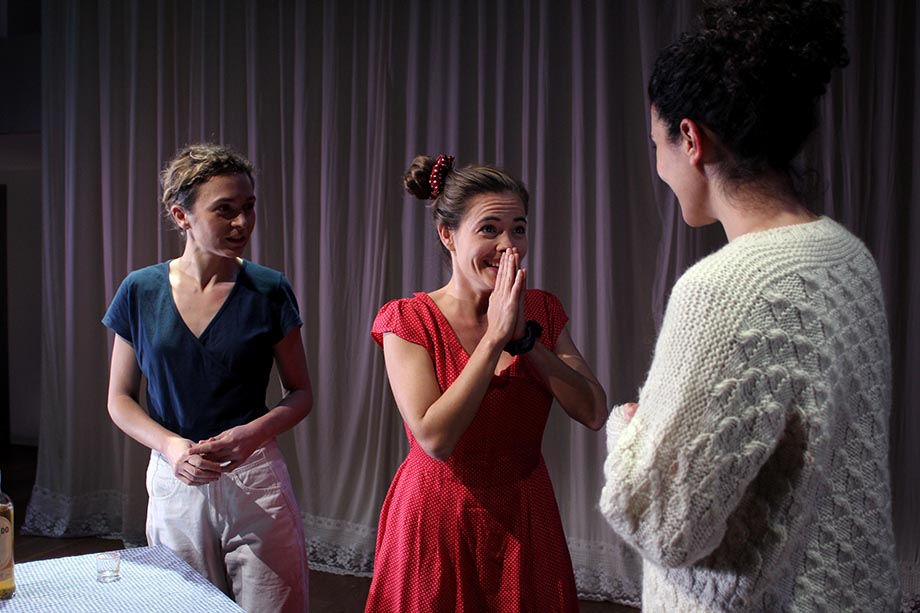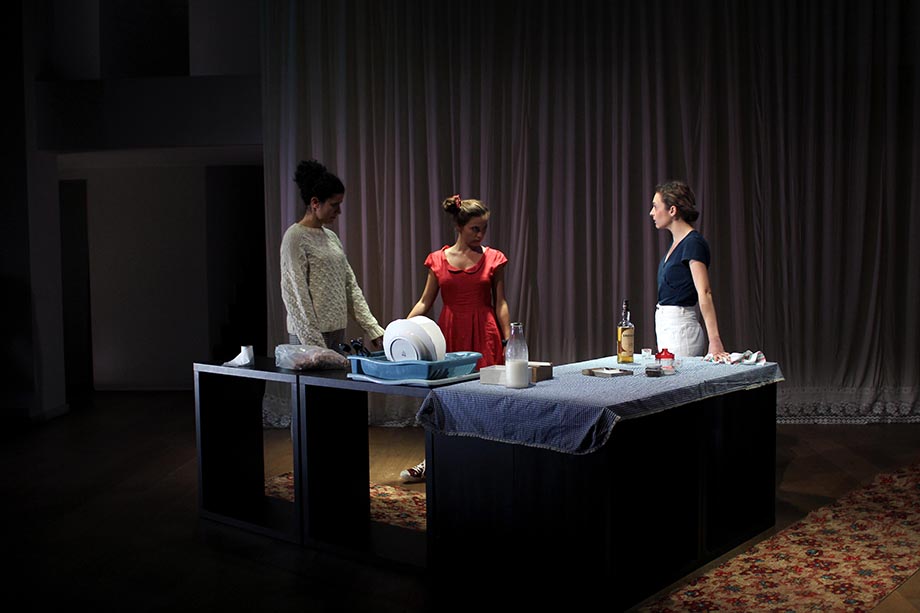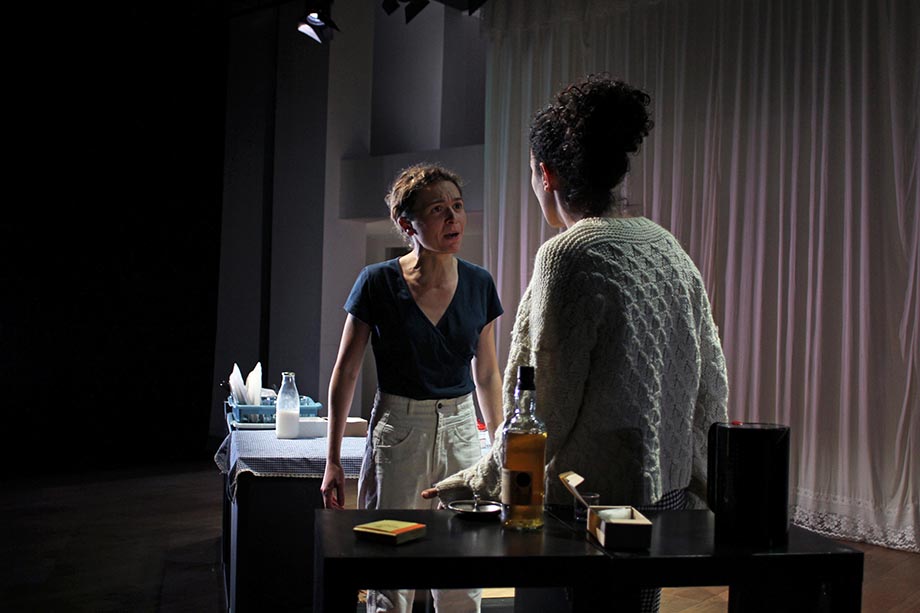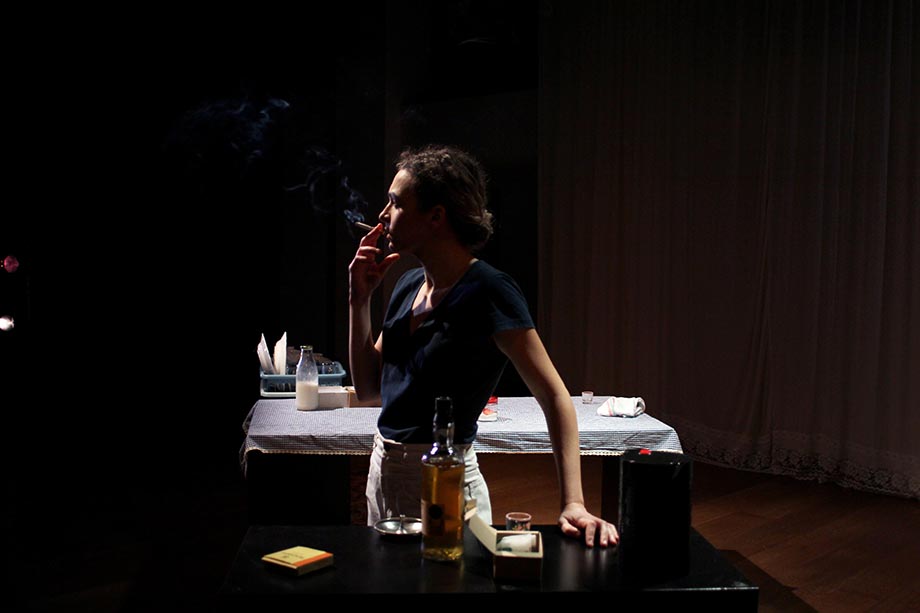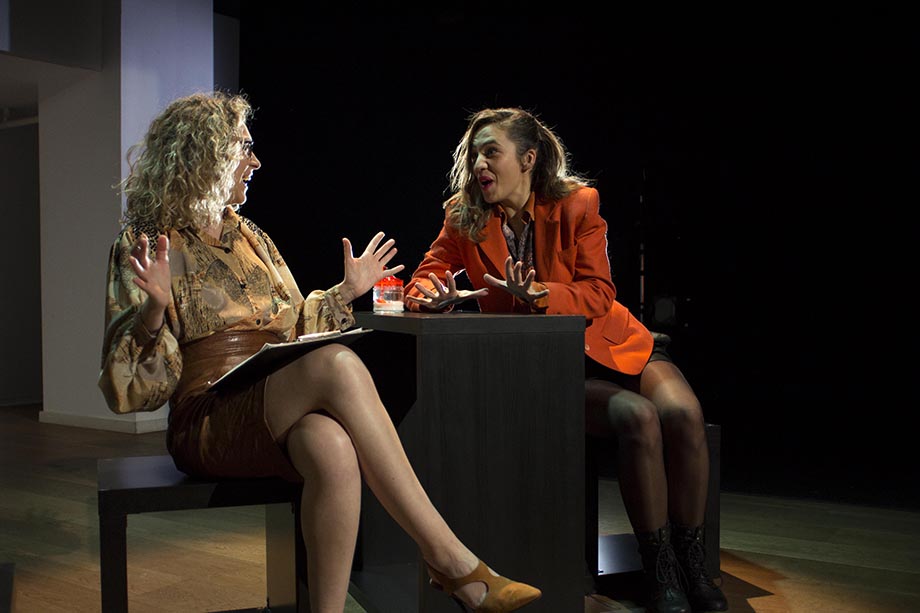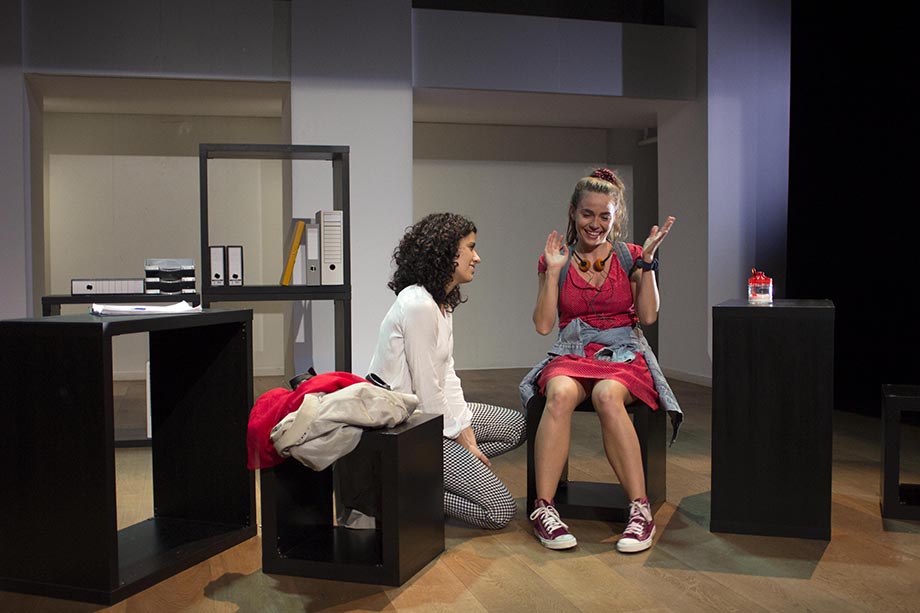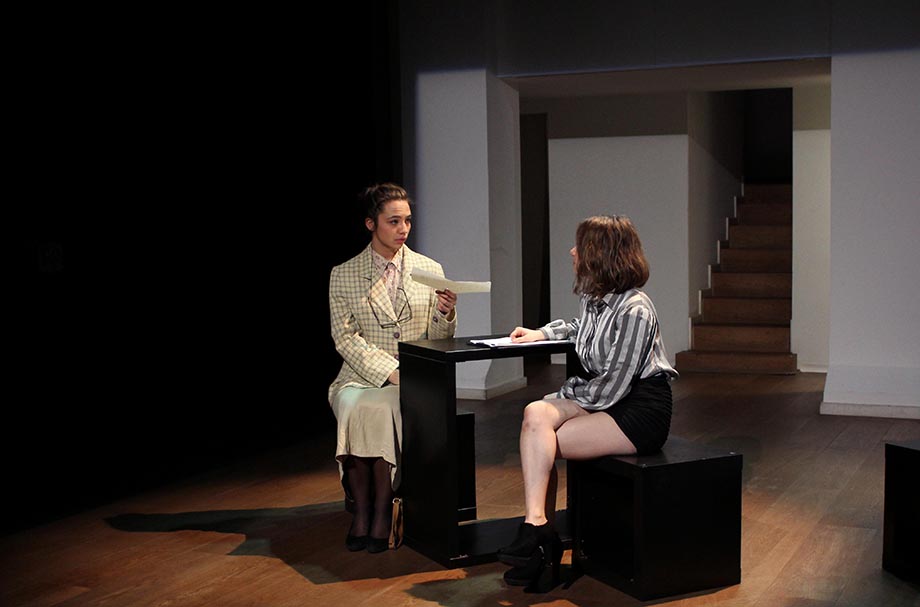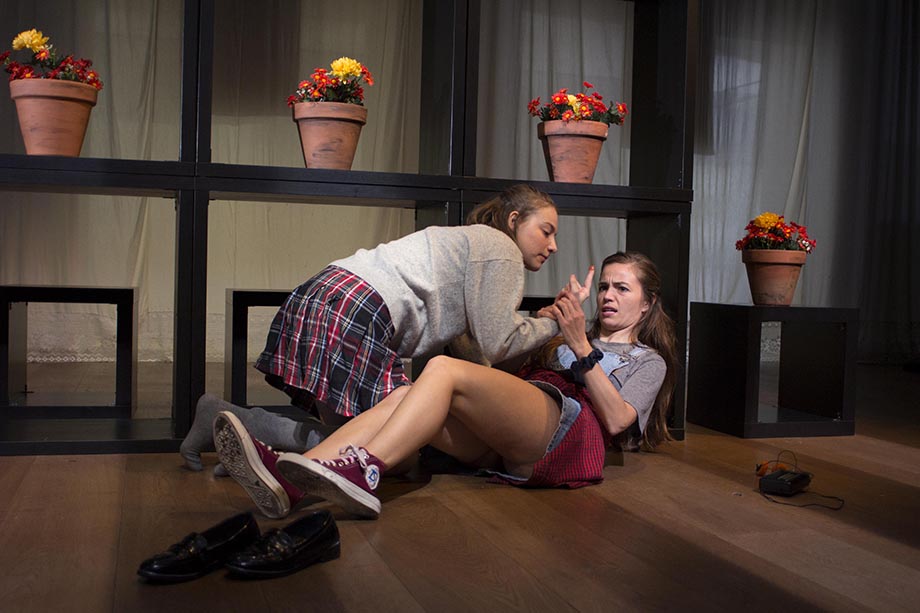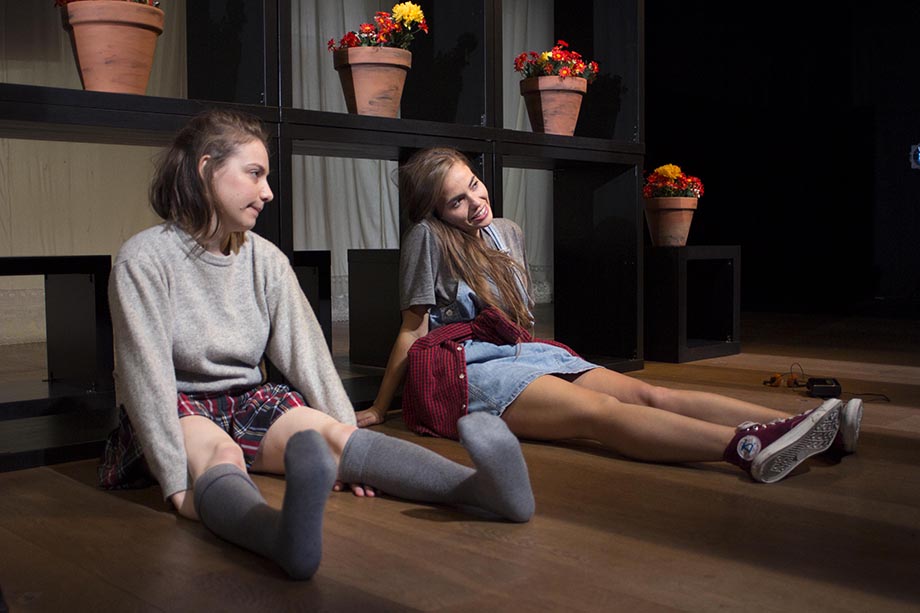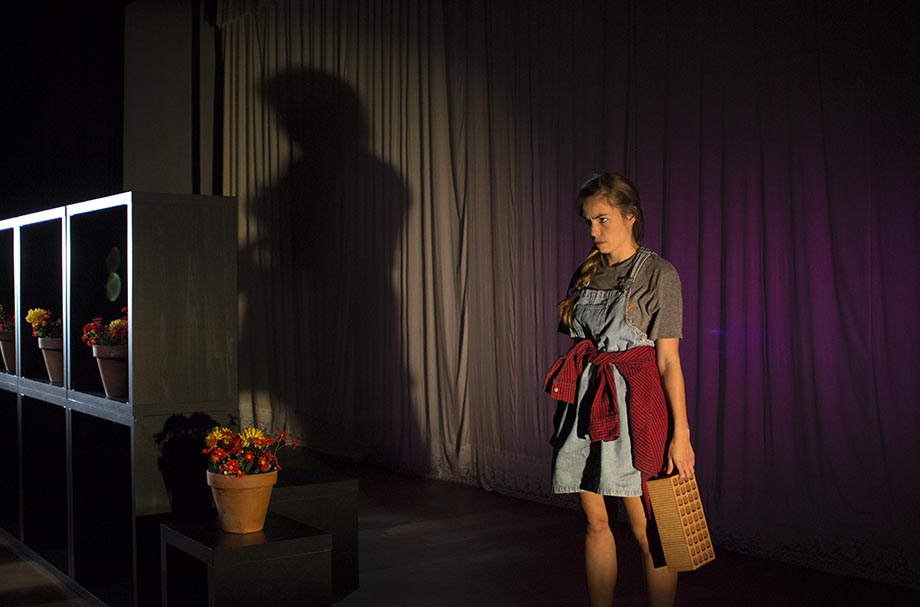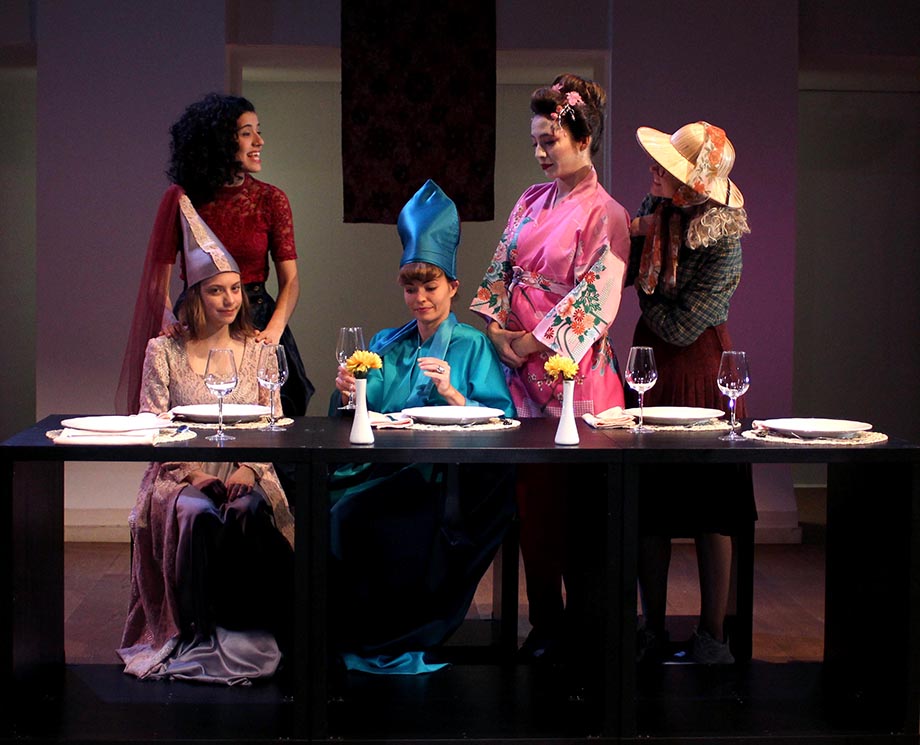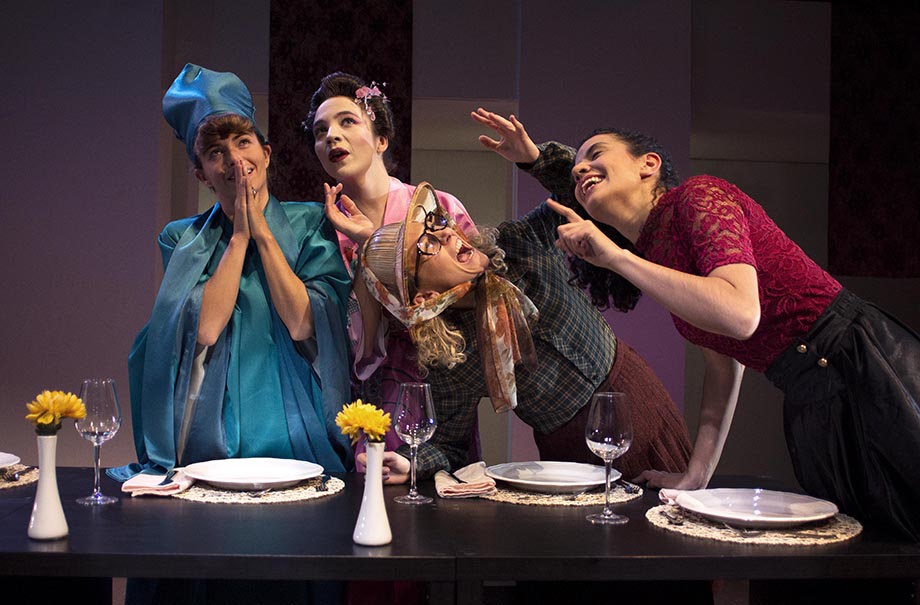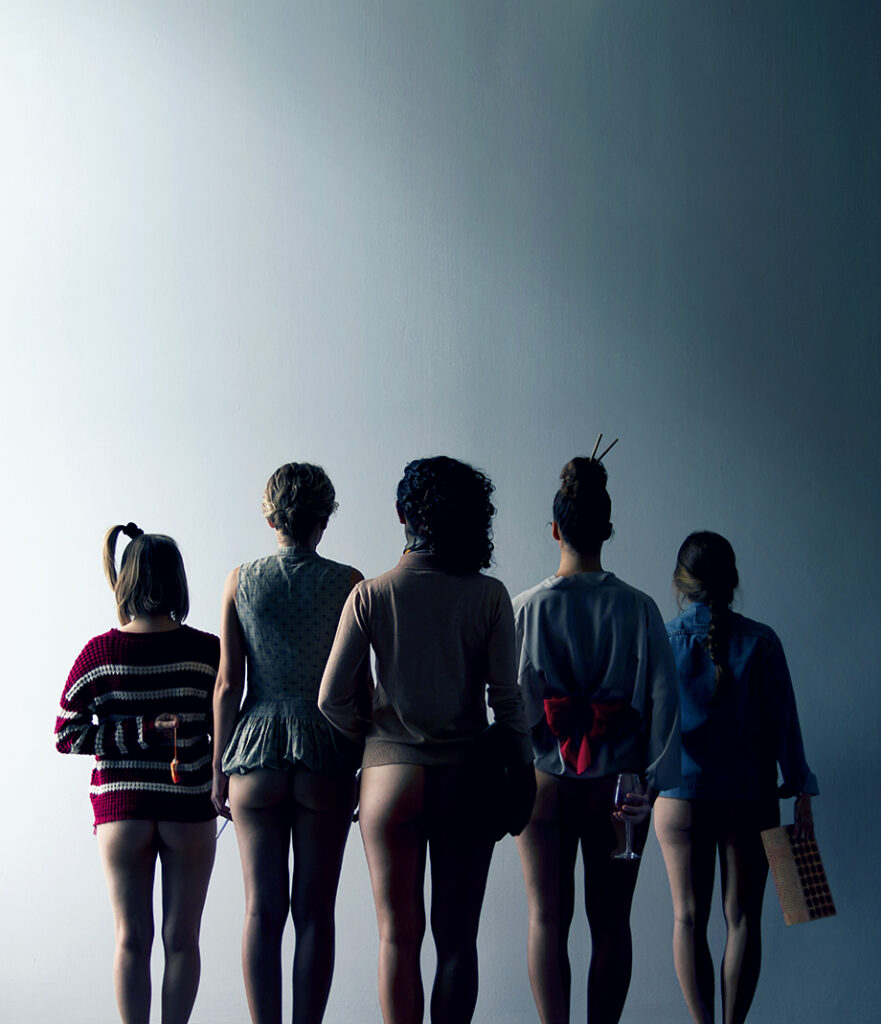#ClàssicsEnCanal
SYnopsis
We are in England at the beginning of the 80s. The story takes place in an individualistic society where women begin to have access to positions of power in the workplace. It is in this context that Top Girls was born.
Marlene celebrates her promotion as an executive director with a special dinner at a restaurant. The guests are an interesting group of women: Isabella Bird, a Victorian explorer of the nineteenth century; Lady Nijo, a courtesan of the thirteenth century and later a Buddhist nun; The Pope Joanne, the only woman in history to become a Holy Father of the Church dressing up as a man in ninth century; and Patient Griselda, the obedient wife of one of Petrarca’s fables. Perhaps, like Marlene, all of them have been underestimated in some way or another as they assumed the traditional role as women.
The fantastic dinner opens the play, but soon we get into Marlene’s reality: her work and her family. The secretaries, the customers, her sister, her niece, the niece’s friend … What does she show and what does she hide in each moment? What is she hiding to herself? Top Girls is a journey into a bitter naturalism of a story that is not quite what it seems to be.
About the show
Top Girls offers a very special and specific vision of the contemporary woman. Caryl Churchill said that being “feminist” is not necessarily synonymous with being politically on the left: the more conservative political classes of the late twentieth century took very seriously the feminist wave of the beginning of the century and this is the context where Top Girls happens. The author shakes the audience creating an ideal prototype of modern woman and destroys it very slowly, making the audience question what a woman should be in contemporary society. We are aware that we approach the piece in an era in which the political feminism is not fashion, perhaps because it has triumphed over the idea of “standard woman” a certain old machismo. Top Girls does not talk about women and politics (although contextualizing the story in Thatcher’s Britain is very intelligent), it talks about women. It talks about how the idea of a woman collides with the preconceived idea that professional success is only for men, how motherhood is a sign of weakness, or how a teenager, even today, does not find female referents, neither real or conceptual.
performed by
Ariadna Fígols
Alba José
Cristina López
Neus Pàmies
Maria Salarich
Jaume Viñas
Show in catalan.
A Projecte Ingenu‘s production in collaboration with Nau Ivanow.
Show premiered on November 19, 2015 at Teatre Akadèmia de Barcelona.
creative team
Author: Caryl Churchill
Catalan version: Marc Chornet Artells
Direction: Marc Chornet Artells
Scenography design: Laura Clos (Closca)
Costume design: Maria Albadalejo and Laura Sanz
Lighting design: Justo Gallego
Direction assistant: Xavier Torra
Photography: Andrea Torres


